Description of graduate studies
GRADUATE
SCHOOL OF
MEDICAL
LABORATORY
SCIENCE
検査技術科学分野
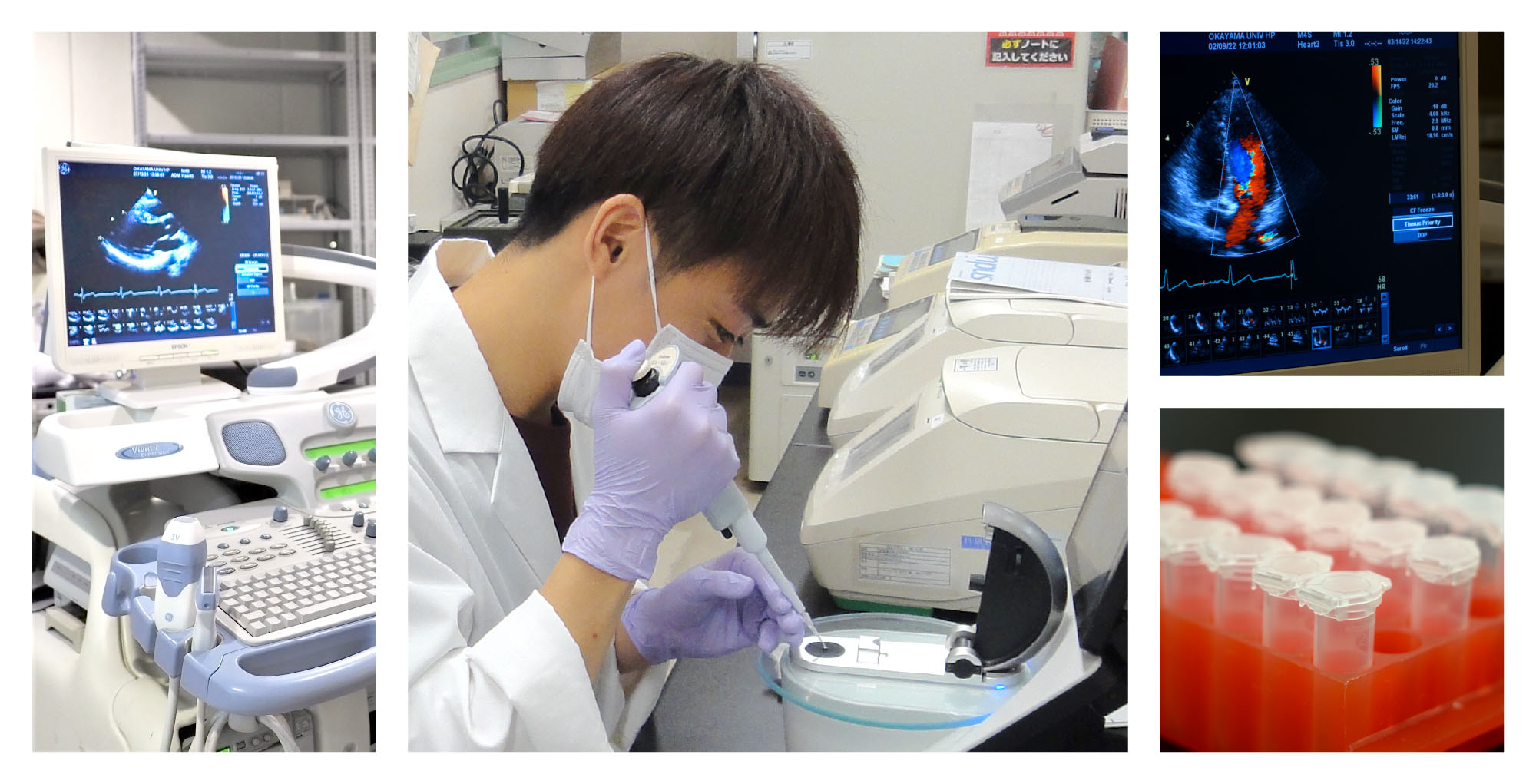
OVERVIEW
Overview
Clinical examination is the first area of medicine to reflect advances in science and technology. In the field of medical laboratory science, students gain an even deeper understanding about areas that relate to medical examination. They acquire extensive knowledge and advanced technologies, and cultivate practical and scientific skills. The Graduate School of Health Sciences nurtures inquisitiveness and creativity, for students to undertake research and development into new examination methods for diagnosis, seeking to clarify mechanisms involved in the onset and progression of disease, by deepening their knowledge in various fields such as cells, immunity and genes, and familiarizing them with the latest analytical techniques such as in molecular biology. The aim of the Graduate School is to develop researchers and/or educators with advanced levels of professional skills and expertise, who can contribute to the improvement of health, medicine and welfare. For example, by applying knowledge and skills in medical engineering or informatics to conduct research and development into new techniques in physiological diagnostics, new equipment in welfare engineering, or new systems supporting diagnosis and treatment.
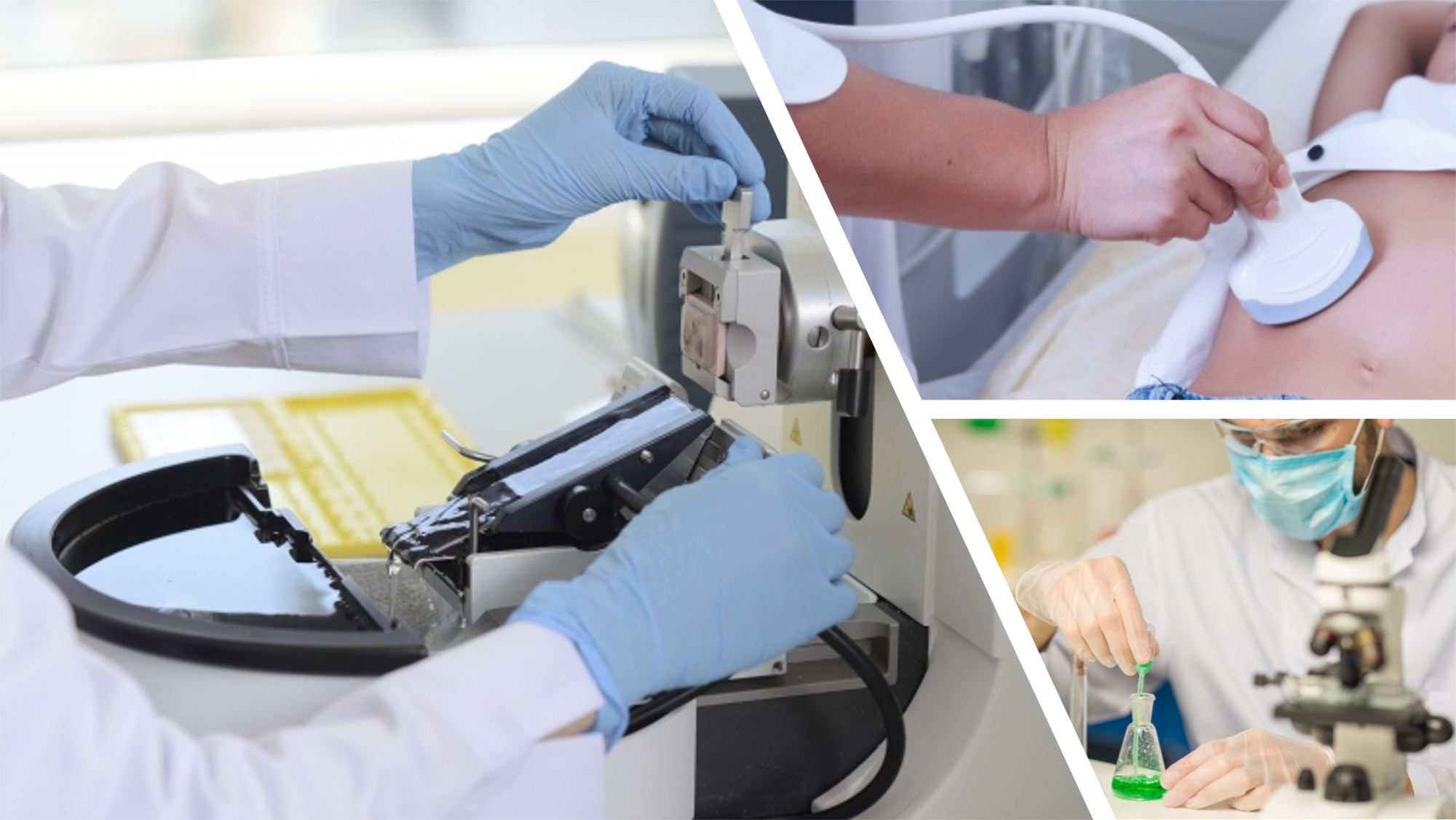
The departments belonging to the Medical Laboratory Sciences are as follows.
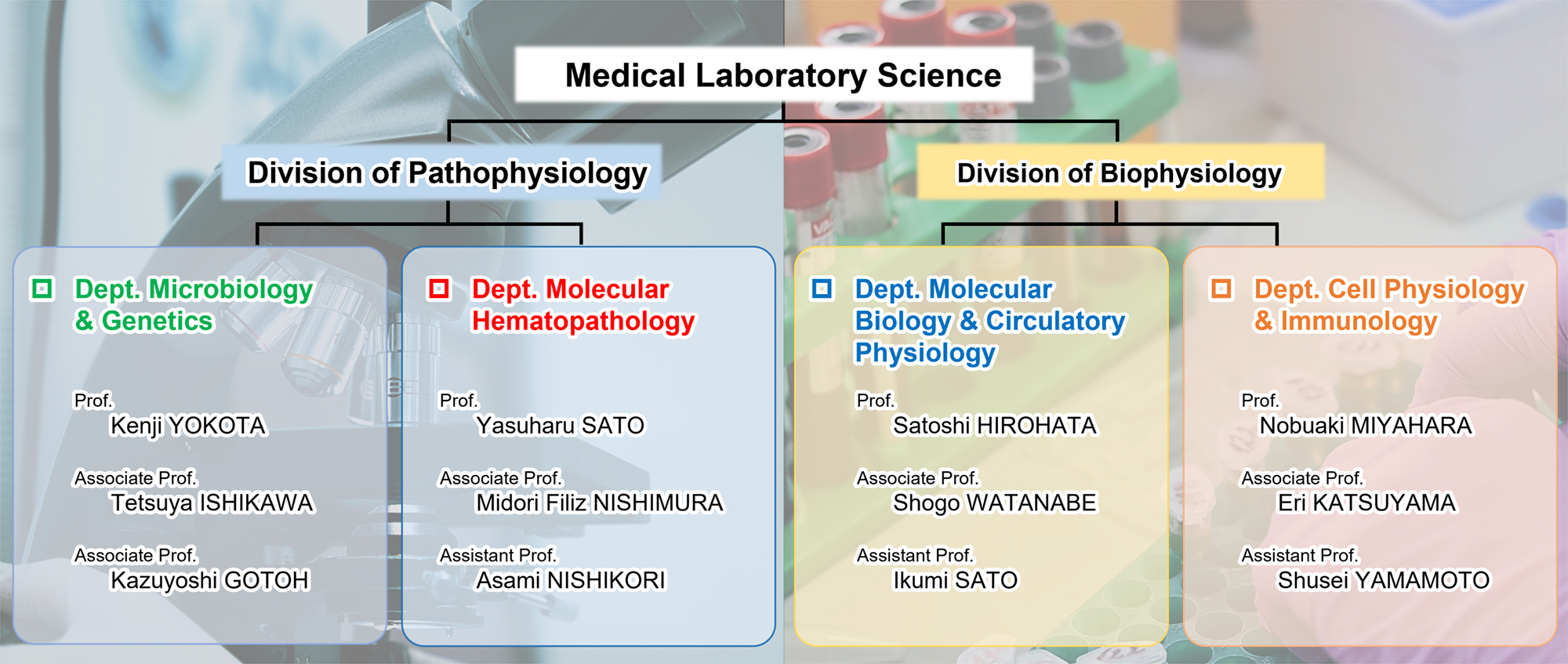
Department of Microbiology and Genetics
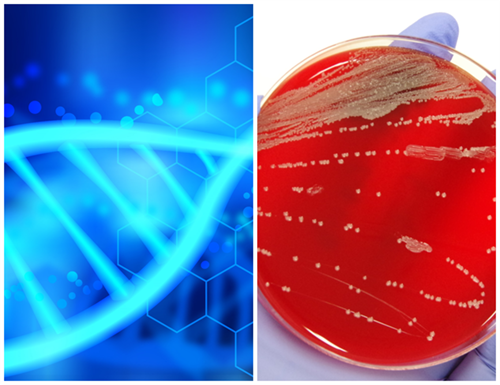
We investigate the effects of microorganisms on humans from a microscopic point of view by conducting experiments that require microbiological, viral, and genetic analysis. We mainly use cells but also conduct experiments on animals.
Department of Molecular Hematopathology
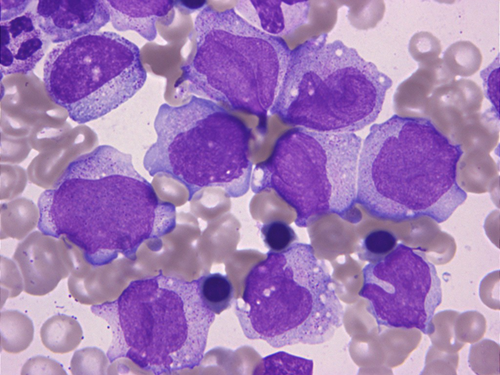
We investigate lymphoproliferative disorders such as IgG4-related disease, Castleman disease and lymphomas using genetic analysis and other molecular techniques. The students in the "Genome medical scientist program" are supervised by the faculty of this department.
Department of Molecular Biology and Circulatory Physiology
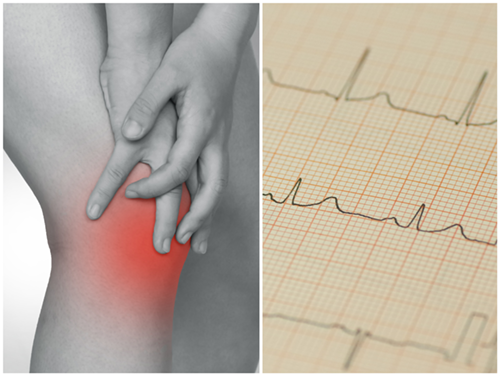
We investigate the pathogenesis of pathological conditions and therapeutic methods using cells and animals. Our research interests include cardiovascular diseases and osteoarthritis.
Department of Cell Physiology and Immunology

We analyze pathological conditions targeting respiratory diseases, immunodeficiency, liver diseases, and muscle diseases. In this Department, we not only conduct experiments using cells and animals, but also analyze patients' laboratory information.
Please refer to the "researchmap" for each faculty member's research achievements and here for more detailed information on their research.
COURSE
Course
Advance Practice Research Program
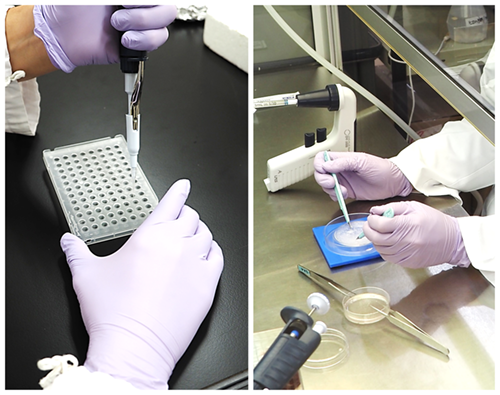
Clinical examination is one of the important "pillars" that support medical science and is an area in which advances in science and technology are quickly reflected. In this course, students will deepen their expertise and understanding of diseases in various specialized fields such as pathology, physiology, microbiology, immunology, and biochemistry through research activities. In addition, students acquire a spirit of inquiry and creativity that will enable them to not only elucidate the mechanisms of disease onset and progression but also to research and develop new testing methods that will contribute to diagnostics. Through research activities in this course, we will foster medical professionals, researchers, and educators who will contribute to and lead the way in improving health, medicine, and welfare, while possessing advanced knowledge and skills in their respective fields of specialization.
Genome Medical Scientist Program
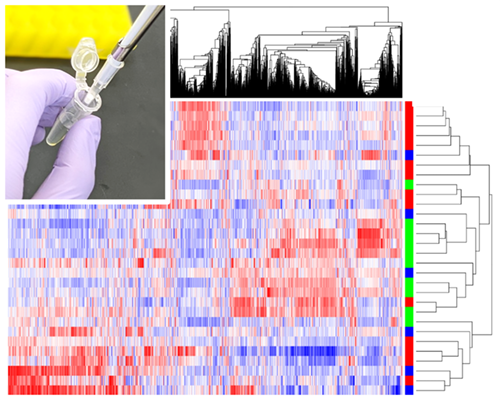
Genomic medicine is an emerging medical discipline that involves using genomic information about an individual as part of their clinical medicine such as diagnosis, therapeutic decision-making and so on. Already, genomic medicine is making an impact and rapidly expanding around the world in the fields of oncology, pharmacology, rare and undiagnosed diseases, and infectious disease. Therefore, the field of genomic medicine requires scientists with excellence in genomic medicine. In this program, we will collaborate with Okayama University Hospital to develop human resources for the next generation of genomic medicine field.
